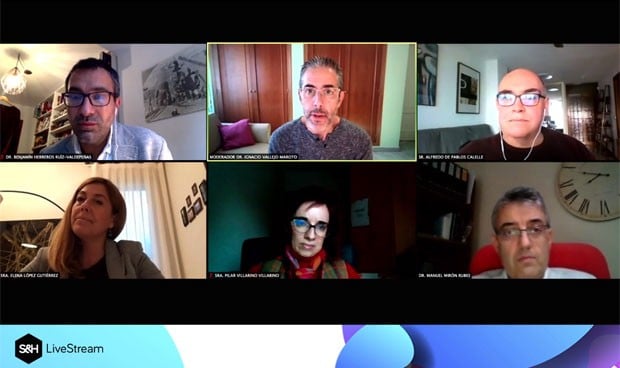
[ad_1]


The 21st century has seen progress doctor-patient relationship in which the doctor is no longer that loving father who advises his son what is best for him but rather collaborates in the decisions of the patient, guaranteeing autonomy This.
If this seemed like something that is still far from being achieved, there are people who feel it even more: those with a disability functional. Because disability is not a disease and the doctor “does not always have to understand what a person with disabilities is”.
Alfredo de Pablos, president of the Association of Patients with Chronic Pluripathologies, put his finger on the sore in the first of the tables of the 3rd day of Patients of the Spanish Society of Internal Medicine (SEMI), developed in virtual format.
“The medical profession associates disability with disease, but outside the consultation, the person with disabilities has a life plan and a way of participating in society, we are not sick or we constantly experience the disease”.

The ethical dilemma of disability
Indeed, doctors recognize the difficulties of entering that world. Benjamin Herreros, internist at the Alcorcón Foundation and director of the Francisco Vallés Institute of Clinical Ethics, explains that “in consultation it is easier to listen to the conventional patient and make a quick decision. But in those who have a dysfunction it is more difficult, we do not have a global vision ”.
And he gives an example of this difficulty to understand: a couple where both have hereditary deafness want to do a PGD to select the embryo that has the same condition as them. The doctor would advise the opposite but this is the simplest situation – hypothetically – for the parents, who would understand the future child better and communication would not be that difficult.
Herreros points out that, despite the fact that many social groups have acquired greater shares of individual freedom during the 20th century, “we doctors were the last to let go of the power we have, letting the sick speak and share their experiences” .
Disability and home hospitalization
One of the great advances in person-centered care in recent years has been home hospitalization. Manuel Mirón, coordinator of the SEMI Home Hospitalization and Telemedicine Work Group, warns that goal number 1 “is not the efficient management of resources, although we know that home hospitalization is also driven by this interest”.
Mirón stresses that, in this situation, the caregiver “no longer feels the stress or overload of the caregivers in the hospital, because they feel they are the protagonists of the team that does therapy with the person who is sick at home”.
However, he recommends that “Many people stay in hospitals because they don’t have an assistant availableThere are also inequalities in home hospitalization and need to be resolved to advance in this area.

Although it may contain statements, data or notes from healthcare institutions or professionals, the information contained in Medical Writing is edited and prepared by journalists. It is recommended that the reader be consulted with any health-related questions with a healthcare professional.
[ad_2]
Source link